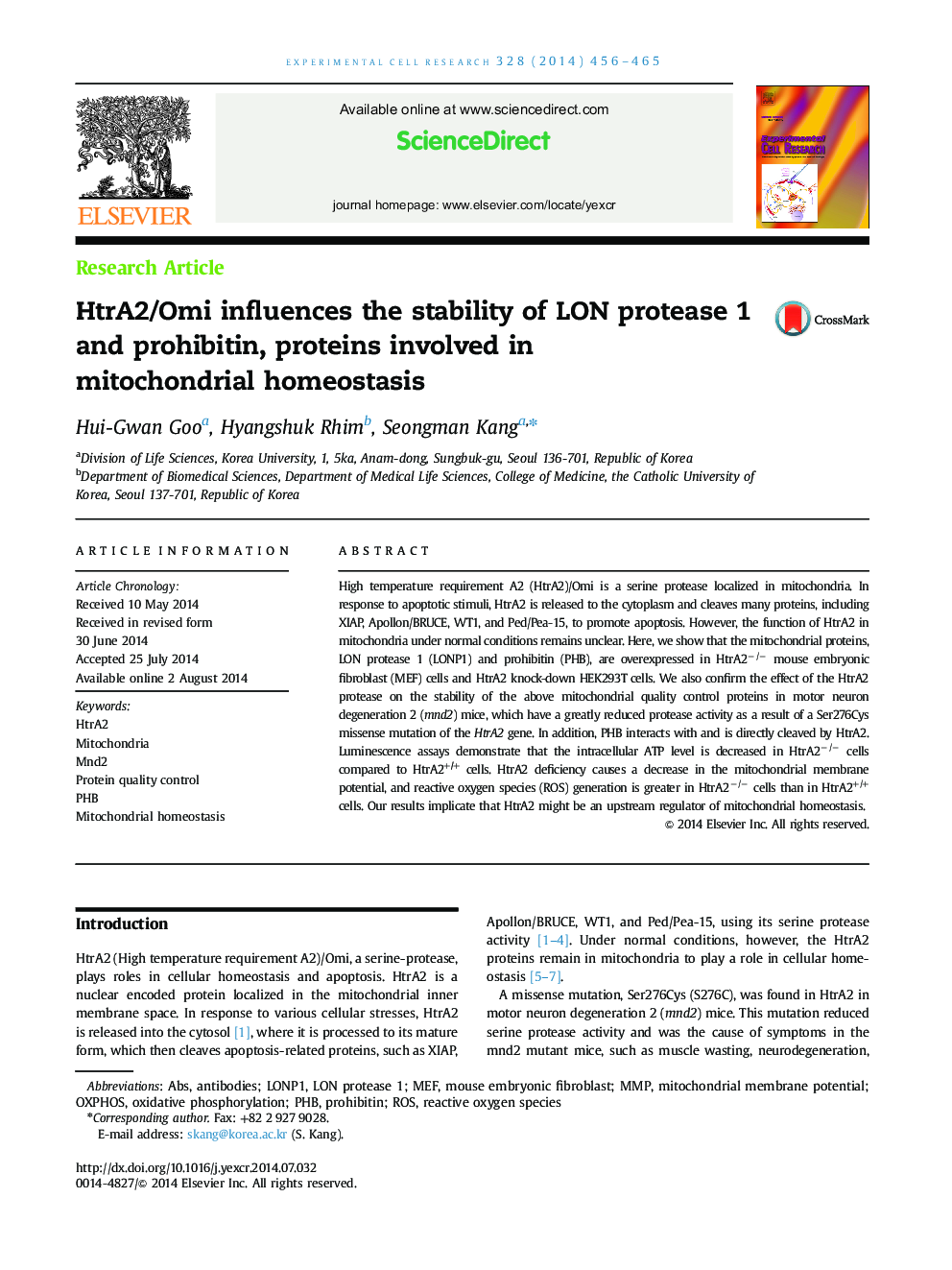| Article ID | Journal | Published Year | Pages | File Type |
|---|---|---|---|---|
| 2130279 | Experimental Cell Research | 2014 | 10 Pages |
•HtrA2 influences the stability of LONP1 and PHB proteins.•PHB interacts with and is directly cleaved by HtrA2.•HtrA2 deficiency affects ROS generation, ATP production, and MMP.•HtrA2 might be an upstream regulator of mitochondrial homeostasis.
High temperature requirement A2 (HtrA2)/Omi is a serine protease localized in mitochondria. In response to apoptotic stimuli, HtrA2 is released to the cytoplasm and cleaves many proteins, including XIAP, Apollon/BRUCE, WT1, and Ped/Pea-15, to promote apoptosis. However, the function of HtrA2 in mitochondria under normal conditions remains unclear. Here, we show that the mitochondrial proteins, LON protease 1 (LONP1) and prohibitin (PHB), are overexpressed in HtrA2−/− mouse embryonic fibroblast (MEF) cells and HtrA2 knock-down HEK293T cells. We also confirm the effect of the HtrA2 protease on the stability of the above mitochondrial quality control proteins in motor neuron degeneration 2 (mnd2) mice, which have a greatly reduced protease activity as a result of a Ser276Cys missense mutation of the HtrA2 gene. In addition, PHB interacts with and is directly cleaved by HtrA2. Luminescence assays demonstrate that the intracellular ATP level is decreased in HtrA2−/− cells compared to HtrA2+/+ cells. HtrA2 deficiency causes a decrease in the mitochondrial membrane potential, and reactive oxygen species (ROS) generation is greater in HtrA2−/− cells than in HtrA2+/+ cells. Our results implicate that HtrA2 might be an upstream regulator of mitochondrial homeostasis.
